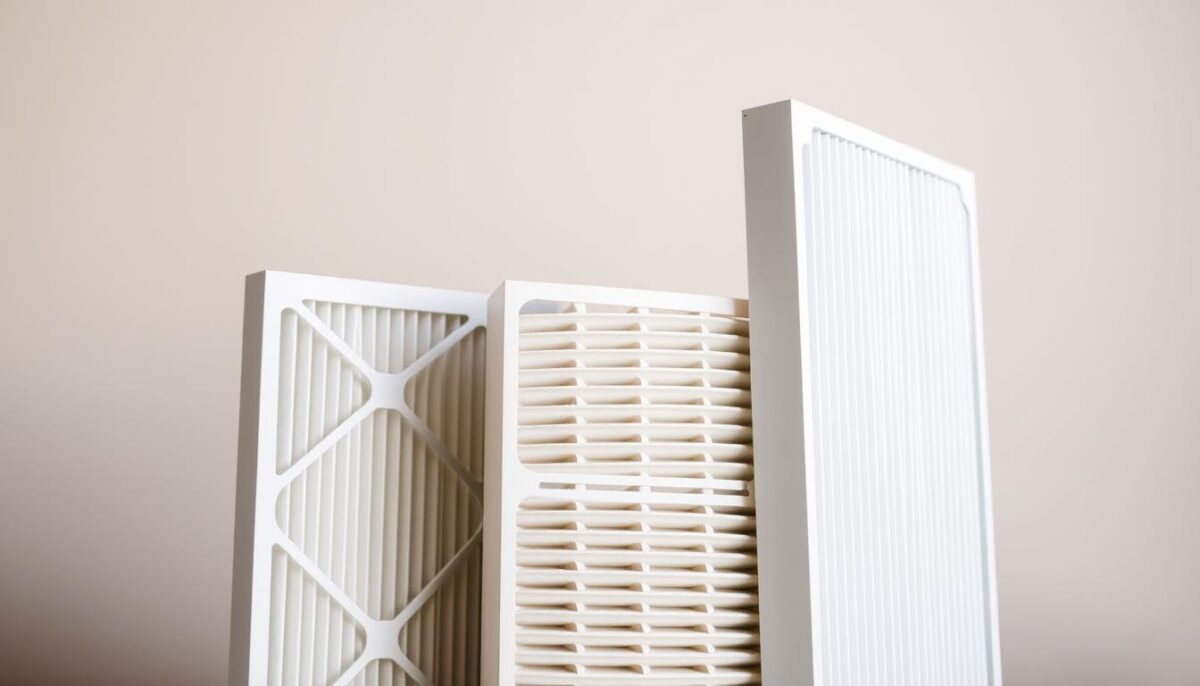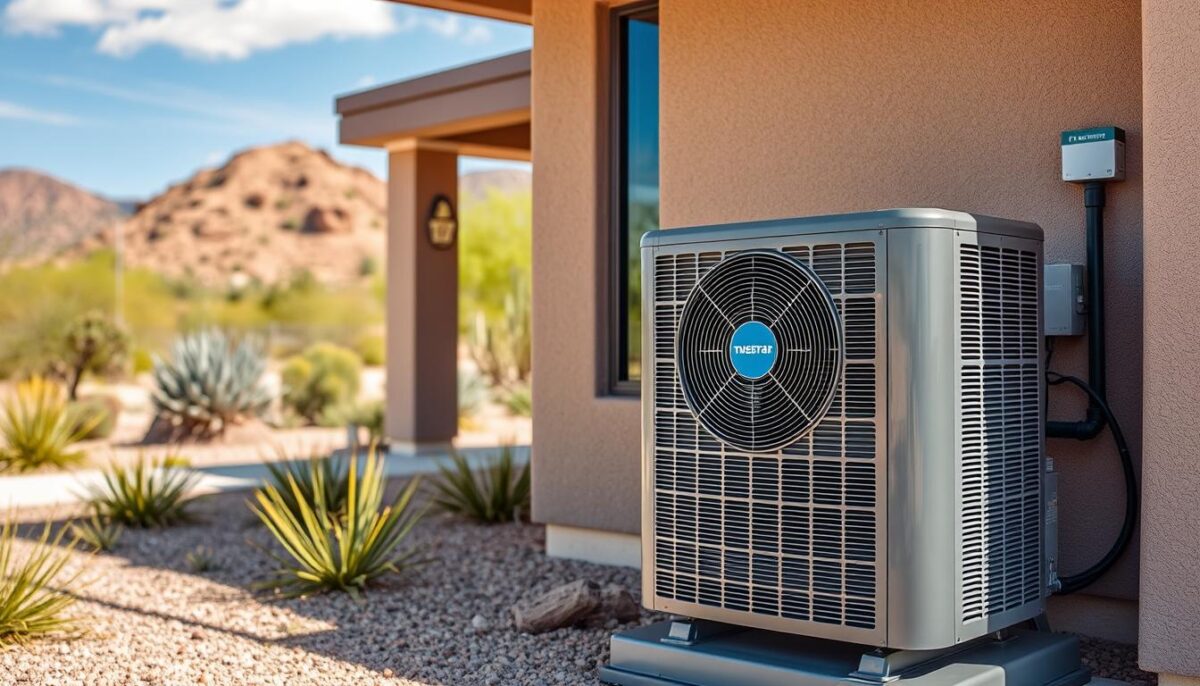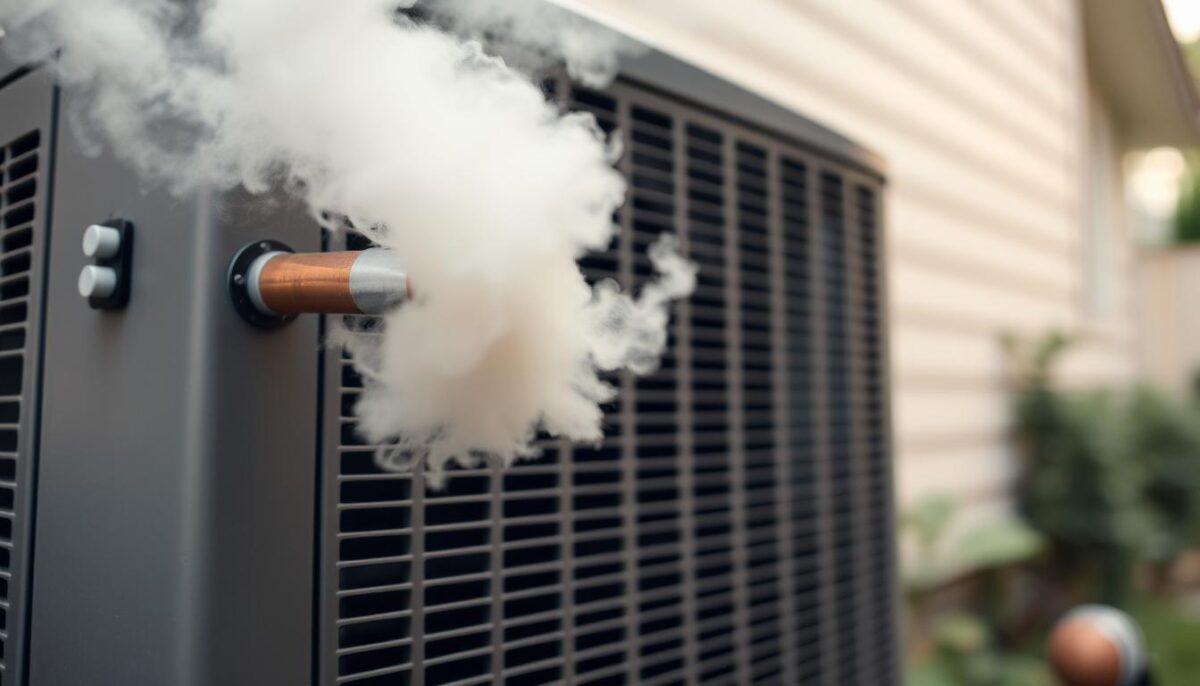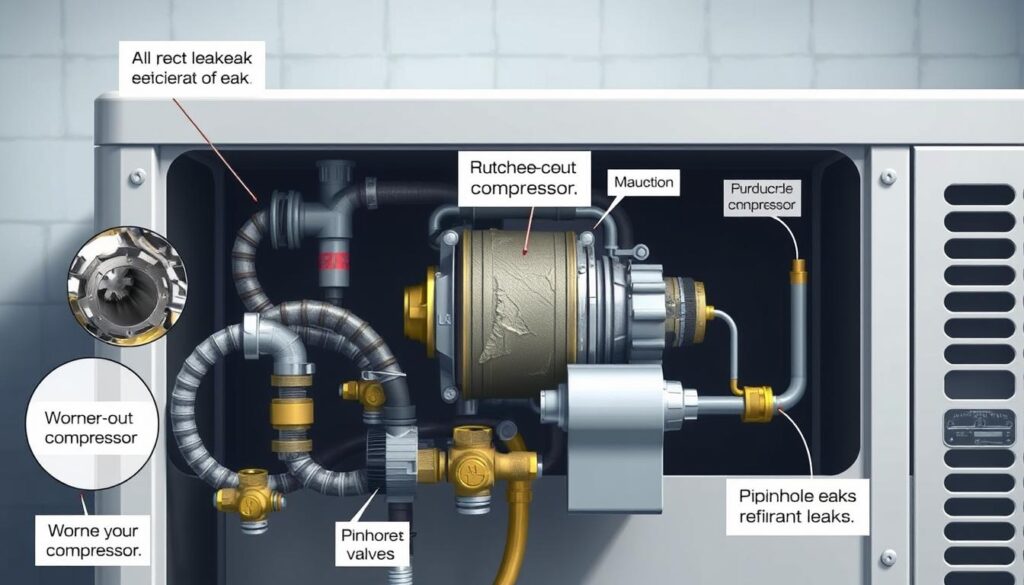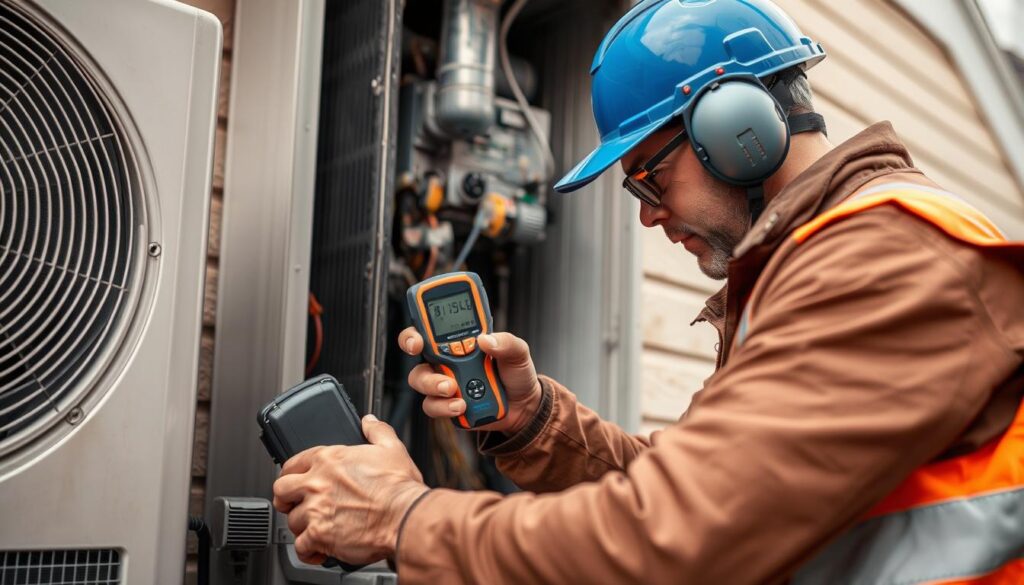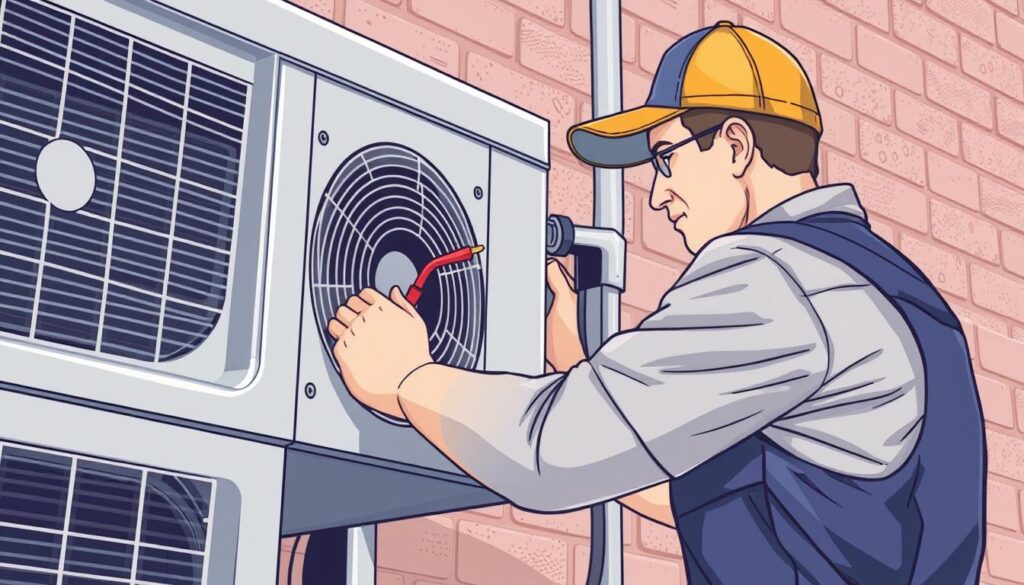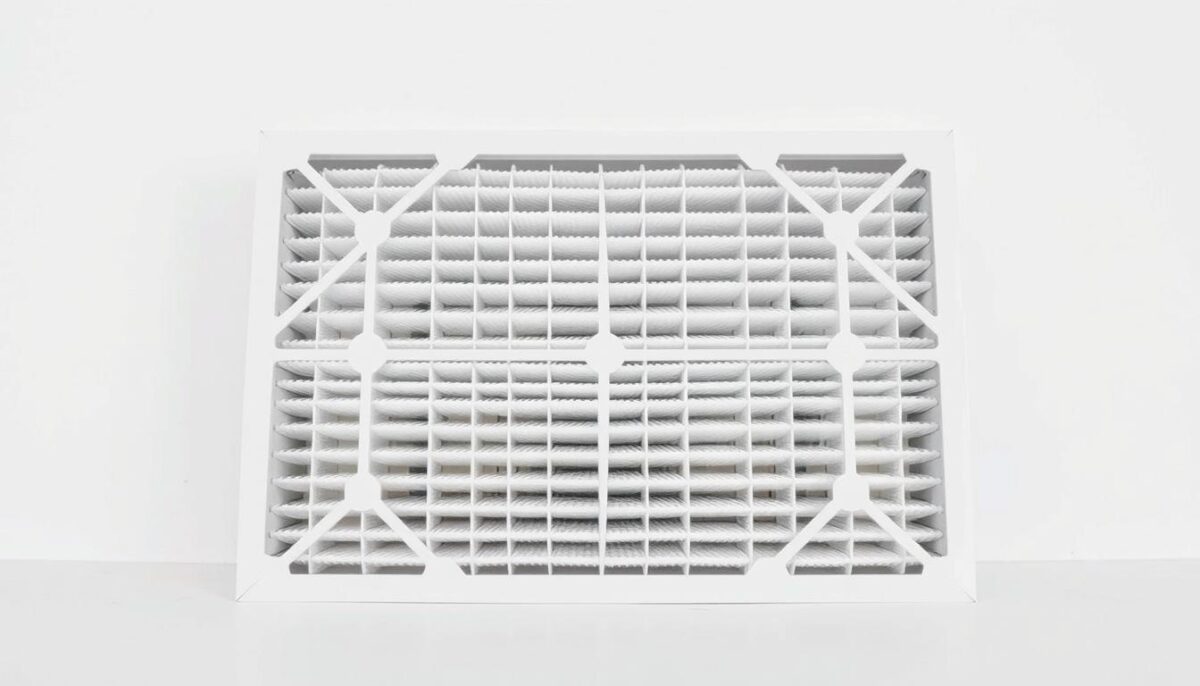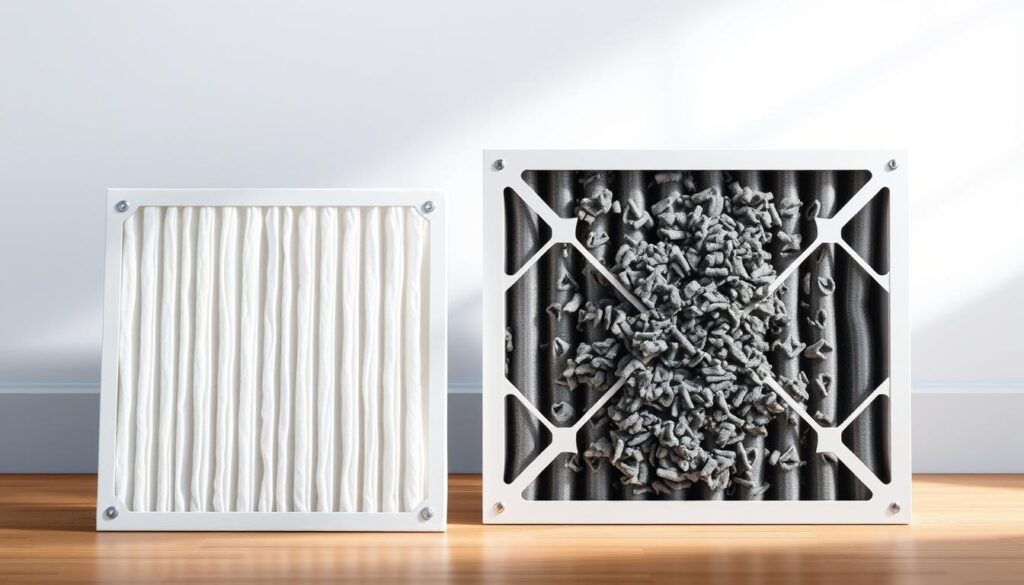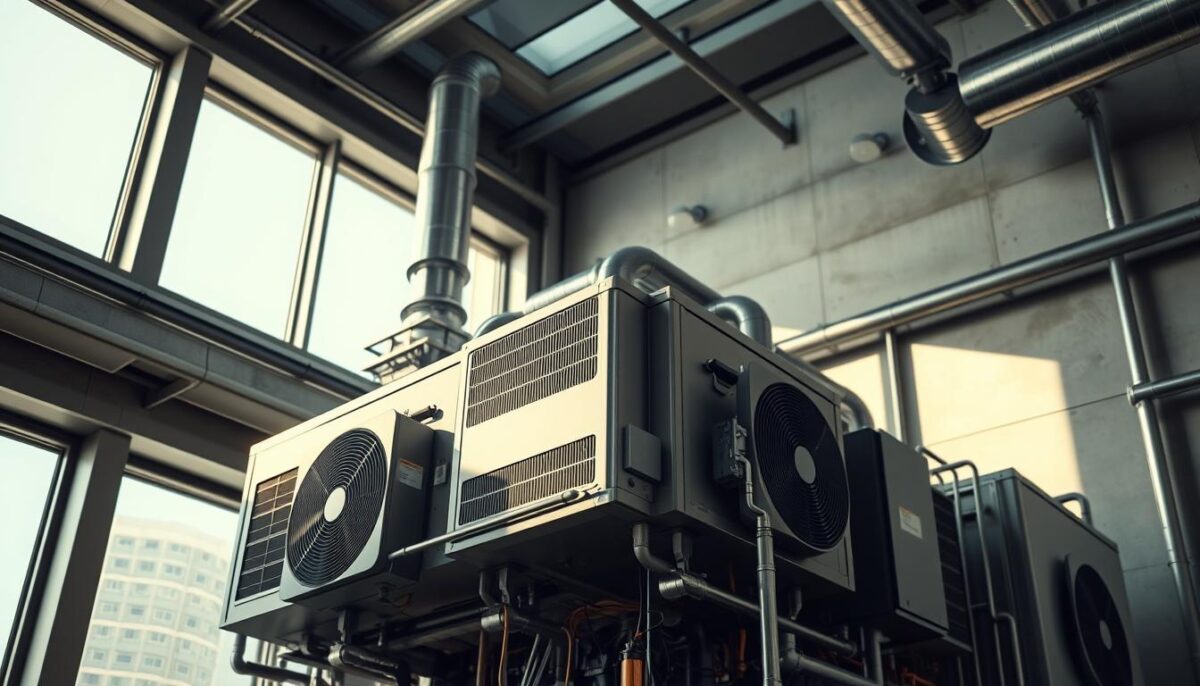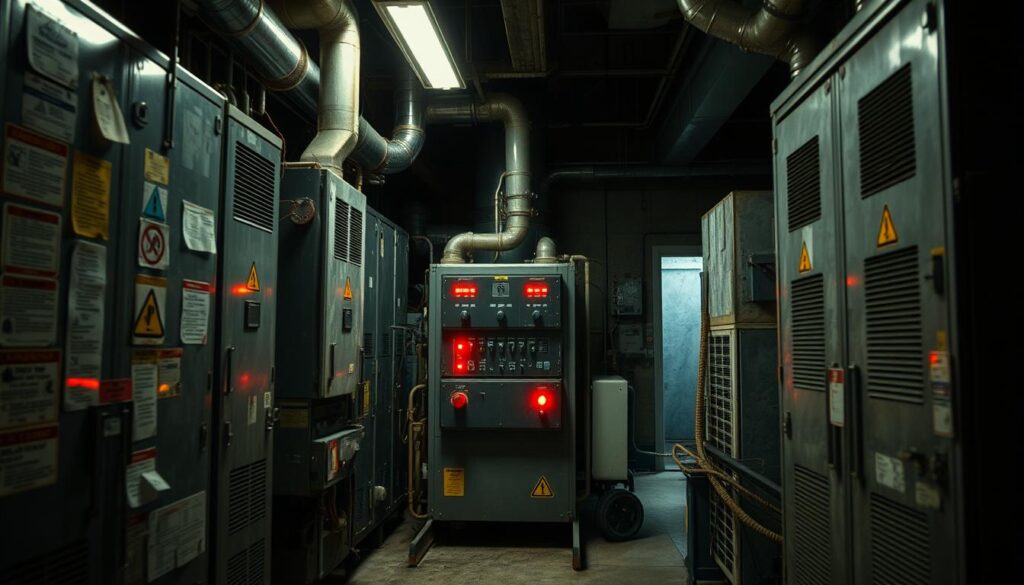Arizona summers are known for their extreme heat, putting a significant strain on air conditioning systems. As temperatures soar, the importance of maintaining an efficient air conditioner cannot be overstated.
To combat the heat and keep energy bills in check, it’s crucial to optimize your cooling system. By implementing a few simple strategies, you can significantly improve your air conditioner’s performance and reduce energy consumption.
This guide will explore practical tips to maximize your cooling system’s efficiency during the hottest months, ensuring a comfortable indoor environment without breaking the bank.
Key Takeaways
- Simple DIY maintenance tasks can significantly improve air conditioner efficiency.
- Investing in smart technology can lead to substantial energy savings.
- Optimizing your cooling system can extend its lifespan.
- Implementing efficiency measures can lead to significant cost savings.
- Tailored strategies can help address the unique challenges of desert climates.
The Arizona Summer Challenge: Why AC Efficiency Matters
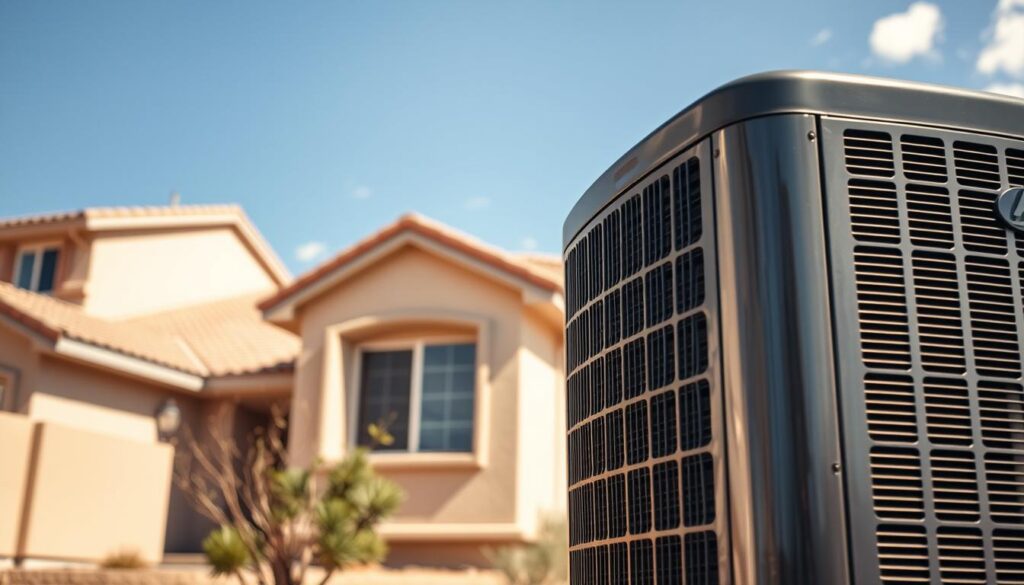
As Arizona summers reach extreme temperatures, the importance of AC efficiency becomes paramount. The state’s desert climate means that air conditioning is not just a luxury, but a necessity for comfort and safety during the long summer months.
Understanding Arizona’s Extreme Heat
Arizona’s summer is characterized by extremely high temperatures, often exceeding 100°F for consecutive days. This extreme heat puts a significant strain on air conditioning systems, making efficiency crucial.
The prolonged exposure to high temperatures means that even small inefficiencies in cooling systems can lead to substantial energy consumption and costs.
The Impact of Inefficient Cooling on Energy Bills
Inefficient cooling systems can have a profound impact on household energy bills. For every degree you set your air conditioner thermostat cooler than 78 degrees, your energy use increases by 8 percent.
This direct relationship between thermostat settings and energy consumption highlights the financial benefits of maintaining an efficient air conditioning system.
- Inefficient cooling can increase monthly energy bills by 20-30% during peak summer months.
- Modern, efficient air conditioning systems can reduce cooling costs by up to 40% compared to older units.
- Understanding the economics of cooling efficiency can help homeowners make informed decisions about maintenance and upgrades.
Setting Your Thermostat for Optimal Efficiency
Optimizing your thermostat settings is crucial for achieving efficiency in your AC system during Arizona’s scorching summers. A well-adjusted thermostat not only enhances the comfort level in your home but also plays a significant role in energy conservation.
The Ideal Temperature Setting for Arizona Summers
For Arizona summers, setting your thermostat to 78°F (25.5°C) is recommended when you’re home. This temperature setting provides a comfortable indoor environment while minimizing the strain on your AC system, thus optimizing energy use.
Programming Your Thermostat for Day and Night
Programming your thermostat to adjust temperatures according to your daily schedule can significantly reduce energy consumption. Raising the temperature when you’re away or sleeping can lead to substantial savings on your cooling costs.
Smart Thermostats: A Worthwhile Investment
Smart thermostats are a relatively new technology that allows for remote control of your HVAC system from your smartphone or tablet. They offer features like occupancy sensors, humidity sensors, Wi-Fi connectivity, and geofencing capabilities, which can reduce cooling costs by 15-23% compared to traditional models.
Some benefits of smart thermostats include learning your preferences and habits over time, automatically optimizing temperature settings for efficiency, and providing detailed energy usage reports.
Essential AC Maintenance for Peak Performance
Ensuring your AC operates at peak performance during Arizona’s hot summers requires consistent and thorough maintenance. A well-maintained air conditioning system not only provides better cooling but also operates more efficiently, saving you money on energy bills.
Regular Filter Replacement Schedule
One of the simplest yet most crucial maintenance tasks is replacing your AC filter regularly. A dirty filter can significantly reduce your AC’s efficiency and increase your energy consumption. It’s recommended to check your filter every month and replace it every 30 to 90 days, depending on usage and the type of filter.
Cleaning Air Vents and Registers
Cleaning air vents and registers is another important task. Dust and debris can accumulate, obstructing airflow and reducing the overall performance of your AC system. Use a soft brush or a vacuum cleaner to gently clean the vents and registers, ensuring that air can flow freely.
Professional Maintenance Timing and Benefits
While there are several DIY maintenance tasks you can perform, it’s also crucial to have a professional technician inspect and maintain your AC system at least once a year. Schedule this visit in early spring, before the intense heat arrives, to ensure your system is ready for the summer. A professional can check refrigerant levels, tighten electrical connections, lubricate moving parts, and clean the condensate drain, among other tasks. This not only improves efficiency but can also extend the lifespan of your AC, saving you time and money in the long run.
Optimizing Your Home’s Airflow
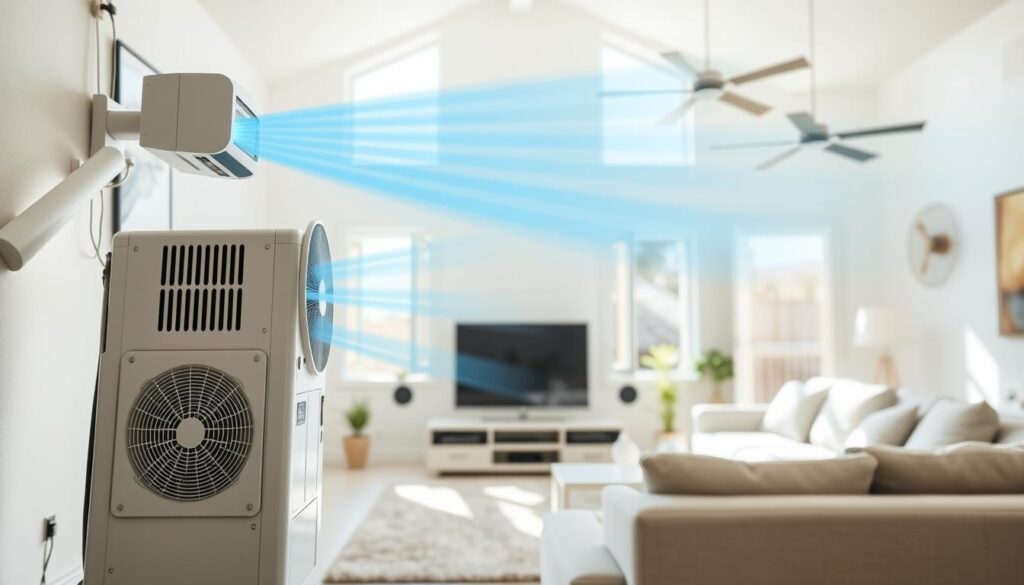
Optimizing your home’s airflow is crucial for maintaining a comfortable indoor environment during Arizona’s scorching summers. Proper airflow ensures that your air conditioning system works efficiently, distributing cooled air throughout your home. This not only enhances comfort but also helps in reducing energy bills.
Proper Furniture Placement Around Vents
The way you arrange furniture around air vents can significantly impact your home’s airflow. Ensure that furniture does not block or obstruct air vents, as this can restrict the flow of cooled air into rooms. Keeping a clear path for air to circulate around vents is essential for maintaining efficient airflow.
Using Ceiling Fans to Improve Air Circulation
Ceiling fans can be a valuable addition to your cooling strategy, helping to circulate air and making your home feel cooler without over-relying on your AC. By running ceiling fans in a counterclockwise direction during summer, you can push cooled air down to the floor, improving circulation and enhancing the overall efficiency of your cooling system.
Keeping Interior Doors Open or Closed
The position of your interior doors can affect airflow within your home. Keeping doors open allows for better air circulation, preventing pressure imbalances that can make your system work harder. However, if you prefer to keep doors closed for privacy, consider installing door vents or undercutting doors by 1-2 inches to maintain airflow. This simple adjustment can help in managing the natural tendency for heat to rise, especially in two-story homes.
Outdoor Unit Care and Maintenance
Proper care of your air conditioner’s outdoor unit is crucial for maintaining its efficiency during Arizona’s scorching summers. The outdoor unit, also known as the condenser, plays a vital role in dissipating heat from your home. Neglecting its maintenance can lead to reduced performance and increased energy bills.
Clearing Debris Around the Condenser
Keeping the area around the condenser unit clear of debris is essential for unobstructed airflow. Weeds, leaves, and other obstructions can significantly reduce the unit’s ability to dissipate heat. Regularly clean the area around the condenser to ensure it has enough space to breathe.
Providing Shade for Your Outdoor Unit
While it might seem counterintuitive, providing shade for your outdoor unit can actually help improve its efficiency. Direct sunlight can cause the unit to work harder, increasing energy consumption. Consider installing a shade structure or planting trees at a safe distance to provide natural shade.
Cleaning Condenser Coils and Fins
Dirty coils can reduce cooling efficiency by up to 40%. To maintain your unit’s performance, clean the condenser coils at least twice during the cooling season. Turn off the power to the unit before cleaning, and use a commercial coil cleaner and a specialized fin comb to straighten bent aluminum fins.
Regular maintenance of your outdoor unit is key to ensuring your air conditioner operates efficiently throughout the summer. By following these simple steps, you can enjoy a cooler home without breaking the bank.
Sealing Your Home Against Heat Infiltration
As Arizona’s summer heat intensifies, sealing your home against heat infiltration becomes crucial for maintaining a cool and energy-efficient living space. Adequate insulation and weatherization may allow you to raise the temperature setting of your thermostat and still remain comfortably cool. This not only enhances comfort but also significantly reduces energy consumption.
Identifying and Fixing Air Leaks
Air leaks around windows, doors, and ducts can significantly compromise your home’s cooling efficiency. To identify leaks, perform a simple candle test or use an incense stick around potential leak areas. Once identified, seal these gaps using caulk, spray foam, or weatherstripping, depending on the location and size of the leak.
Proper Window and Door Sealing Techniques
Windows and doors are common areas where heat can infiltrate. Applying weatherstripping around doors and using door sweeps can help seal gaps. For windows, consider using window film or replacing old, inefficient windows with new, energy-efficient models. Proper sealing techniques can significantly reduce heat gain.
The Importance of Attic Insulation in Arizona
Attic temperatures in Arizona can soar to 150-160°F during summer, creating a substantial heat load. The Department of Energy recommends R-38 to R-60 insulation levels for Arizona attics. Proper attic insulation can reduce cooling costs by 20-30% and improve comfort by preventing heat radiation through ceilings. Consider upgrading your attic insulation and installing radiant barriers to enhance your home’s energy efficiency.
Window Strategies for Blocking Arizona Heat
With temperatures soaring in Arizona, it’s essential to employ smart window strategies to block the heat. Effective window treatments can significantly reduce the amount of heat that enters your home, thereby lowering indoor temperatures and energy consumption.
Effective Window Coverings for Desert Climate
Choosing the right window coverings can make a significant difference in keeping your home cool. Options include thermal curtains, blinds, and shades that are designed to reflect sunlight and insulate your windows. For more information on energy-efficient window coverings, visit Energy.gov.
Window Films and Tinting Options
Window films and tinting are another effective way to block heat. These films can be applied directly to your windows to reflect solar radiation and reduce heat gain. They come in various shades and can be chosen based on your specific needs and preferences.
When to Open Windows: Evening Cooling Techniques
While it might seem counterintuitive, opening windows at the right time can help cool your home. During the spring and fall, when outdoor temperatures drop below indoor temperatures after sunset, opening windows can provide free cooling. Create cross-ventilation by opening windows on opposite sides of your home to establish airflow that pushes hot air out and draws cooler air in.
To maximize this natural cooling strategy:
- Use window fans strategically by placing exhaust fans in windows on the downwind side of your home and intake fans on the upwind side.
- Monitor outdoor humidity levels during monsoon season to avoid bringing in humid air.
- Close windows and blinds early in the morning to trap the cool air inside.
Ductwork Optimization for AC Efficiency Tips
Optimizing your ductwork is crucial for maximizing AC efficiency during Arizona’s scorching summers. A well-maintained ductwork system ensures that cooled air reaches its intended destination without significant losses.
Signs of Leaky Ductwork
Leaky ductwork can lead to substantial energy losses and decreased AC efficiency. Signs that your ductwork may be leaking include:
- Inconsistent cooling across different rooms
- Higher than expected energy bills
- Visible dust or debris around vents
These signs indicate that your ductwork may need inspection and sealing.
Professional Duct Sealing Benefits
Professional duct sealing can significantly improve your AC’s efficiency. Benefits include:
By sealing leaks and insulating ducts, homeowners can enjoy a more efficient cooling system.
Duct Insulation in Unconditioned Spaces
Ducts located in unconditioned spaces like attics or crawlspaces require proper insulation to prevent energy loss. Key considerations include:
- Using insulation with a minimum R-8 value in Arizona attics
- Ensuring complete coverage without gaps
- Properly securing insulation to maintain effectiveness
Combining duct sealing with insulation provides maximum benefit, as sealing alone won’t prevent thermal transfer through duct walls.
Reducing Indoor Heat Generation
Reducing indoor heat generation is a simple yet effective way to keep your home cool during the sweltering summer months. The heat generated by various appliances and activities can significantly impact your home’s cooling efficiency, causing your air conditioning unit to work harder and consume more energy.
Appliance Usage During Peak Heat Hours
Using heat-generating appliances during peak heat hours can raise your indoor temperature, making your AC work harder. Avoid using conventional ovens and stovetops during the hottest parts of the day. Instead, consider using alternative cooking methods or postponing cooking until the evening when it’s cooler.
For instance, microwave ovens use 70-80% less energy than conventional ovens and generate minimal heat, making them ideal for summer cooking. You can also use slow cookers, pressure cookers, and rice cookers, which produce less ambient heat while using less energy.
Energy-Efficient Lighting Choices
Traditional incandescent bulbs convert a significant amount of energy into heat, contributing to indoor heat generation. Switching to energy-efficient LED bulbs can help reduce this heat. LEDs emit very little heat and use significantly less energy than incandescent bulbs.
| Lighting Type |
Energy Consumption |
Heat Emission |
| Incandescent Bulbs |
High |
High |
| LED Bulbs |
Low |
Low |
Alternative Cooking Methods for Summer
Changing your cooking habits can also help reduce indoor heat generation. Outdoor grilling keeps cooking heat entirely outside the home, eliminating its impact on indoor temperatures and cooling costs. You can also prepare no-cook meals like salads, sandwiches, and cold soups to eliminate cooking heat entirely during the hottest days.
Landscaping for Natural Cooling
In Arizona’s scorching desert climate, landscaping can be a game-changer for natural cooling. By choosing the right plants and designing your outdoor space thoughtfully, you can create a cooler environment around your home without relying heavily on air conditioners, thus improving overall efficiency and maintaining a comfortable temperature.
Strategic Tree Placement for Shade
Strategically placing trees around your property can significantly reduce the amount of direct sunlight that hits your home, thereby lowering the surrounding temperature. Desert-adapted trees like palo verde and mesquite are excellent choices for Arizona landscapes.
Desert-Friendly Plants That Cool Your Property
Desert-friendly plants are not only drought-resistant but also provide natural cooling effects. Options include desert-adapted vines like Lady Banks Rose and Cat’s Claw, which can create living shade screens. Strategically placed shrubs and ground covers like trailing lantana and verbena can also reduce reflected heat and lower ground temperatures.
Upgrading to Energy-Efficient AC Systems
For Arizona residents tired of skyrocketing energy bills, upgrading to an energy-efficient AC system offers a practical solution to stay cool while saving money. The extreme heat in Arizona demands high-performance cooling solutions, making energy-efficient air conditioners a necessity rather than a luxury.
Understanding SEER Ratings for Arizona Conditions
The Seasonal Energy Efficiency Ratio (SEER) rating is a crucial factor when selecting an air conditioning system, especially in Arizona’s hot climate. A higher SEER rating indicates greater energy efficiency. For Arizona’s extreme temperatures, a SEER rating of 14 or higher is recommended. This not only reduces energy consumption but also lowers utility bills.
When choosing an AC system, consider the SEER rating in conjunction with other factors like the system’s ability to maintain consistent cooling during peak heat hours.
Right-Sizing Your AC Unit for Your Home
Right-sizing your AC unit is critical for achieving optimal energy efficiency. An oversized unit may cool your home quickly but can lead to humidity issues and increased energy costs. Conversely, an undersized unit may struggle to cool your home effectively. A professional assessment can determine the correct size based on your home’s specific needs, ensuring efficient cooling and cost savings.
Available Rebates and Incentives
Upgrading to an energy-efficient AC system can be more affordable than you think, thanks to various rebates and incentives. Arizona utilities often offer rebates between $200-$1,000 for high-efficiency AC installation services. Additionally, federal tax credits can provide up to 30% savings on installation costs for qualifying systems. Manufacturer rebates and special financing programs with low or zero interest rates further enhance affordability.
- Arizona utilities typically offer rebates ranging from $200-$1,000 for high-efficiency AC installations.
- Federal tax credits can provide up to 30% savings on installation costs.
- Manufacturer rebates and special financing programs are also available.
Managing Humidity Levels for Better Cooling
High humidity can significantly impact the performance of your air conditioning system in Arizona. During the monsoon season, humidity management becomes crucial for maintaining comfort and efficiency.
The Relationship Between Humidity and Cooling Efficiency
Humidity affects how your air conditioner operates. When the air is full of moisture, your AC has to work harder to cool your home, reducing its efficiency. This is because your AC not only cools the air but also removes moisture. High humidity levels mean your system has to run longer to achieve the desired temperature, increasing energy consumption.
Maintaining optimal humidity levels (between 30-60%) is essential for both comfort and energy efficiency. When humidity is too high, it can make your home feel warmer than it actually is, causing you to lower the thermostat and consume more energy.
Dehumidification Strategies for Monsoon Season
To manage humidity effectively during monsoon season, consider the following strategies:
- Set your fan to “auto” rather than “on” to allow condensation on cooling coils to drain properly.
- Use standalone dehumidifiers to supplement your AC system during particularly humid periods.
- Consistently use bathroom and kitchen exhaust fans to remove moisture at its source.
- Avoid adding unnecessary moisture through activities like indoor clothes drying or excessive showering.
- Seal air leaks to prevent humid outside air from infiltrating your home.
- Consider installing whole-house dehumidifiers integrated with your HVAC system for comprehensive humidity control.
- Utilize smart thermostats with humidity sensors to automatically adjust cooling strategies.
By implementing these strategies, you can maintain a more comfortable indoor environment while optimizing your air conditioner’s efficiency.
Zoning Systems: Targeted Cooling for Larger Homes
Zoning systems represent a smart cooling strategy for larger Arizona homes, allowing for customized temperature control. In multi-story homes, temperature differences between floors can be significant due to heat rising, making zoning particularly valuable.
How Zoning Systems Work
Zoning systems work by dividing a home into separate areas or zones, each with its own temperature control. This is achieved through a combination of dampers in the ductwork and a control system that regulates the air flow to each zone. By cooling only the occupied areas to comfort levels, zoning systems can reduce energy consumption.
The system allows for personalized comfort settings for different family members without wasting energy on unoccupied areas. This targeted approach to cooling enhances overall comfort and efficiency.
Benefits of Zoned Cooling in Multi-Story Arizona Homes
In two-story Arizona homes, zoning can address the unique cooling challenges posed by the desert climate. Areas with large windows or western exposure can be zoned separately to address their unique cooling needs. This approach prevents overcooling the rest of the home.
By cooling only bedrooms at night and maintaining higher temperatures in living areas, significant energy savings can be achieved. The return on investment for zoning systems typically occurs within 2-4 years through these energy savings.
Dealing with Arizona’s Peak Energy Demand Hours
Arizona’s sweltering summers lead to high energy demand, but homeowners can adopt several strategies to manage their energy usage during peak hours. Peak energy demand hours typically occur when the temperature soars, and air conditioners work overtime to cool homes.
Understanding Time-of-Use Electricity Rates
Time-of-use electricity rates are a pricing structure that charges different rates for electricity based on the time of day. During peak hours, usually late afternoon to early evening, the rates are higher due to increased demand. Understanding these rates can help homeowners adjust their energy usage to save on their bills.
| Time Period |
Rate |
| Off-Peak Hours |
Lower Rate |
| Peak Hours |
Higher Rate |
Pre-Cooling Strategies to Avoid Peak Costs
Pre-cooling involves cooling your home before peak rate periods to avoid running your air conditioner during the most expensive hours. Effective pre-cooling strategies include lowering your thermostat by 3-5 degrees below your normal setting during off-peak hours.
- Using programmable thermostats for automated pre-cooling, which can reduce peak hour energy usage by up to 40%.
- Starting pre-cooling 2-3 hours before peak rates begin and gradually increasing the temperature during peak hours.
By implementing these strategies, homeowners can significantly reduce their energy expenses during peak demand hours.
DIY Maintenance vs. Professional Service: What You Can Safely Do
As Arizona’s summer heat intensifies, understanding the balance between DIY maintenance and professional service becomes essential. While some tasks can be handled by homeowners, others require the expertise of licensed HVAC professionals to ensure the longevity and efficiency of your air conditioning system.
Monthly Homeowner Maintenance Checklist
Homeowners can perform several simple maintenance tasks monthly to keep their AC system running efficiently. These include:
- Checking and replacing the air filter as needed to improve air quality and system performance.
- Ensuring the area around the outdoor unit is clear of debris.
- Inspecting air vents and registers for blockages.
Regularly performing these tasks can help maintain your system’s quality and efficiency over time.
When to Call the Professionals
While DIY maintenance is beneficial, certain issues require professional attention to prevent further damage to your AC system. These include:
- Unusual noises, odors, or significant changes in cooling performance.
- Refrigerant issues, such as leaks or improper charge levels, which require EPA-certified technicians.
- Electrical problems, including frequent breaker trips or component failure.
- Ductwork inspection and sealing, which is best performed with specialized testing equipment.
Having a licensed heating and cooling professional conduct a thorough cooling system inspection and cleaning once a year can significantly improve system performance and catch minor issues before they become major problems, saving you time and money in the long run.
Staying Cool and Saving Money All Summer Long
By adopting a comprehensive efficiency strategy, homeowners in Arizona can substantially cut down on their cooling costs. Implementing multiple air conditioner efficiency tips from this guide can reduce cooling costs by 30-50% over the summer months.
To achieve this, it’s essential to create a seasonal maintenance calendar that ensures you’re taking the right actions at the right times throughout Arizona’s extended cooling season. Balancing immediate actions, such as filter changes and thermostat adjustments, with longer-term improvements like insulation upgrades, provides both immediate and sustained savings.
Additionally, monitoring your energy usage through utility portals or home energy monitors helps quantify improvements and identify additional opportunities. Teaching household members about efficiency practices ensures everyone contributes to cooling savings. By prioritizing improvements based on your specific home’s needs and budget constraints, you can maximize your return on investment while improving comfort.
Remember, even modest adjustments to habits and maintenance routines can yield significant cumulative savings while keeping your home comfortable during extreme heat. By following these tips, you can enjoy a cooler home without breaking the bank.



